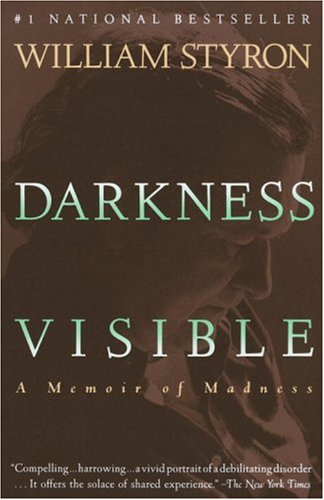 "In depression this faith in deliverance, of ultimate restoration, is absent. The pain is unrelenting, and what makes the condition intolerable is the foreknowledge that no remedy will come—not in a day, an hour, a month, or a minute. It is hopelessness even more than pain that crushes the soul."
"In depression this faith in deliverance, of ultimate restoration, is absent. The pain is unrelenting, and what makes the condition intolerable is the foreknowledge that no remedy will come—not in a day, an hour, a month, or a minute. It is hopelessness even more than pain that crushes the soul."
-- William Styron
If you're a Yale Health patient, you probably received an email announcing "October is Depression Screening Month."
Many, if not most, of the readers of this post will have either struggled with depression at one point or have helped a loved one battle the disease. When a close family member suffered an episode of major depression a few years ago, I did a lot of reading on the topic. One of the most vivid and eloquent first-hand accounts of depression is Darkness Visible: A memoir of madness by the great novelist William Styron.
Styron and his family lived in Connecticut, and it was to Yale-New Haven Hospital (YNHH) where Styron was admitted, suicidal, at the nadir of his depression in 1985. In part thanks to the care he received at YNHH, Styron was able to recover and went on to document his experience. While the story of depression told in Darkness Visible is terrifying, Styron argues that there is hope for the suffering patient:
"To most of those who have experienced it, the horror of depression is so overwhelming as to be quite beyond expression, hence the frustrated sense of inadequacy found in the work of even the greatest artists... If our lives had no other configuration but this, we should want, and perhaps deserve, to perish; if depression had no termination, then suicide would, indeed, be the only remedy. But one need not sound the false or inspirational note to stress the truth that depression is not the soul’s annihilation; men and women who have recovered from the disease—and they are countless—bear witness to what is probably its only saving grace: it is conquerable."
You can borrow a copy of the book from Yale University Libraries using Quicksearch.
